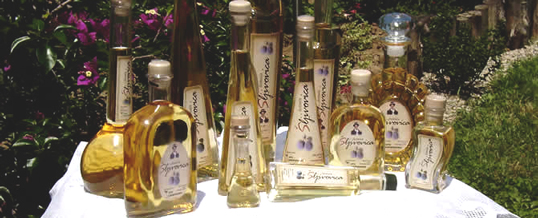
Sumadija – Famous for Plums & Serbian Sljivovica.
If you would like to warm yourself up during the cold winter time, than Serbia is the right place for you. One of the most picturesque parts of Serbia is Sumadija, a fertile region famous for its production of plums and therefore the Serbian Sljivovica, the national drink of Serbia. It is in domestic production for centuries and plums are the national fruit.
[one_half]
The name (Šljivovica) is derived from Serbian Plum (šljiva-plum) and its products are of great importance to Serbs and part of numerous customs. A Serbian meal usually starts or ends with plum products. Šljivovica is served as an aperitif.
A saying goes that the best place to build a house is where a plum tree grows best. Traditionally, Serbian Sljivovica is connected to Serbian culture as a drink used at all important rites of passage.
[/one_half]
[one_half_last]
[frame style=”modern” image_path=”http://demo.makalu.me/talas/wp-content/uploads/2014/12/plums-for-Serbian-Sljivovica-sl-1.jpg” link_to_page=”” target=”” description=”Plums for Serbian Sljivovica” float=”right” lightbox=”http://demo.makalu.me/talas/wp-content/uploads/2014/12/plums-for-Serbian-Sljivovica-xl-1.jpg” lightbox_group=”1″ size=”two_col_small”]
[/one_half_last]
It is used in the Serbian Orthodox patron saint celebration, slava. It is used in numerous folk remedies, and is given certain degree of respect above all other alcoholic drinks.
Its alcohol is normally around 40%, but some locally produced rakia can reach 55-65%. The prepe?enica is double distilled rakia, the alcohol content may exceed 70%. Its most common form, šljivovica is made of plums, but it is also produced from grapes, peaches, apricots, apples, figs, and quinces. Plum rakia or Serbian Sljivovica can be further mixed after distillation with other ingredients, such as herbs, honey, cherries or nuts. Rakia is specialty in Serbia.
Rakia is normally colorless (unless herbs or other ingredients are added). Some forms of rakia are kept in wooden barrels (oak or mulberry), which gives them a special flavor and amber color. It is served in typical glasses called ?okanj?i? or unu?e (from 3 to 5 cl). It is both part of history and tradition in the country and among Serbs across the world. Every Serb is accustomed to Serbian Sljivovica.
Cheers and do not forget to share this post!

